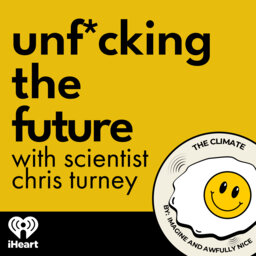Cultural Preservation with Sabrina Elba
Chris is joined by UN Goodwill Ambassador, Sabrina Elba, to discuss climate change, conflict, and climate injustice. Sabrina highlights the urgent, real-time impacts on rural communities and why empowering women is critical to getting us out of this dumpster fire.
Show notes from Chris:
On global climate migration, check out this extraordinary article by the amazing Gaia Vince on the realities of a century of upheaval and how we can build greater resilience in our communities.
Global Citizen has so many fantastically inspiring resources it’s hard to know where to start. But on empowering women and girls in rural areas, this is a truly uplifting article with suggestions on how to take action: 7 Women Changing the Future of Farming in Africa.
In 1 playlist(s)
Unf*cking the Future
Unfucking the Future takes us on an environmental journey with our knowledgeable guide, scientist Ch…Social links
Follow podcast
Recent clips

Blue Carbon with Sanjayan
32:43

Greening Cities with Kotchakorn Voraakhom
27:52

Wildfires with Glynis Humphrey
29:35
 Unf*cking the Future
Unf*cking the Future